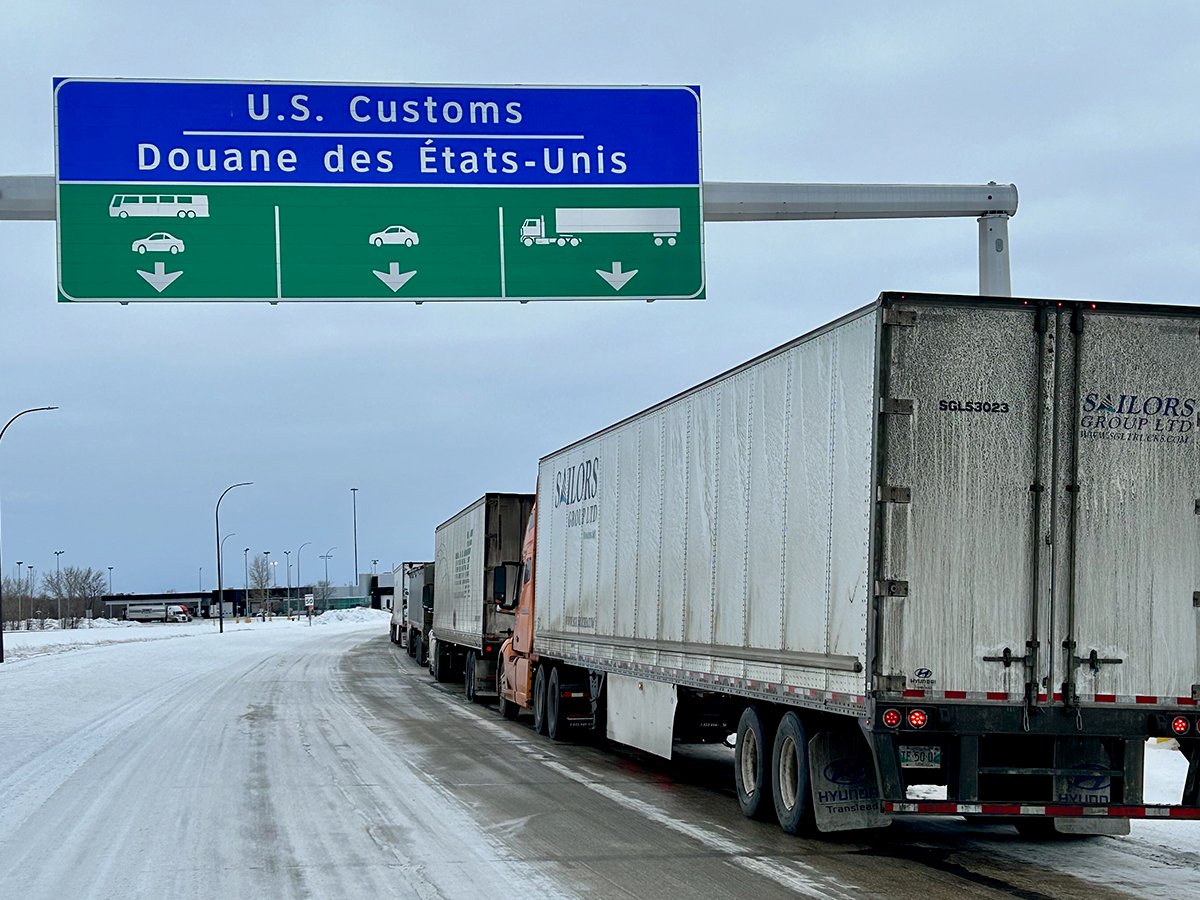REGINA — Canadians should get used to ongoing trade threats from the United States, a former diplomat said last week.
Colin Robertson, now a senior adviser and fellow with the Canadian Global Affairs Institute, said the current tariff threat should act as a stimulus for Canada to get its own house in order. That includes removing interprovincial trade barriers and coming up with an industrial strategy. The provinces should drive this in partnership with Ottawa, he said.
Follow all our coverage of the tariffs situation here
Read Also

Wildfires have unexpected upside this year
One farmer feels smoke from nearby wildfires shrouded the July skies and protected his crop from the sun’s burning rays, resulting in more seeds per pod and more pods per plant.
Robertson said Canada can hold its own in trade agreements if the playing field is level, but the United States has gone rogue.
“I don’t think Mr. Trump going in four years is going to change things,” he said during a Canadian Agri-Food Policy Institute webinar.
The former Canadian ambassador to the European Union, David Plunkett, said Canadian business is structured to take advantage of the U.S. market and that has limited potential gains elsewhere.
“We can no longer assume that we will have the same access to the U.S. market given (Trump’s) calls for reshoring, economic nationalism and the like,” said Plunkett.
“I think we also have to accept that past approaches to negotiations may well need to change.”
He suggested Canada and the European Union launch an economic study to identify the shortcomings and opportunities in the trade agreement between the two, and that trade initiatives outside Europe continue.
Canada did quite well coming out of the last renegotiation of the U.S.-Mexico-Canada Agreement, he said, and John Masswohl agreed.
Masswohl, director emeritus of international relations at the Canadian Cattle Association and vice-president of the International Meat Secretariat, said USMCA has been excellent for trade over many years of improvements.
“There’s no denying we’re heading into new territory. What’s written on the agreement has not been honoured by the person who signed that agreement, the person who said it was the best agreement ever,” he said.
Masswohl said it’s difficult for Canada to figure out what its objectives are now because no one knows what the U.S. wants to achieve. Neither country has a team in place; the U.S. is still nominating cabinet secretaries and Canada is replacing its prime minister.
“My crystal ball tells me that the scope of the decisions that we’re going to have to make here in Canada are going to be beyond what a current lame duck prime minister can impose on a successor, or, once we’re into an election writ period, it’s going to be beyond what is possible under the caretaker provision,” Masswohl said.
Communication is critical, particularly so the U.S. understands why trade with Canada is good for America, he added.
Canadian Meat Council vice-president Claire Citeau noted that Canada has 15 trade agreements covering 70 per cent of its economy and providing access to 1.5 billion customers. However, she said having those agreements isn’t enough.
“The real test lies in utilizing them effectively and, importantly, adapting to rapidly changing global conditions,” she said.
The Comprehensive and Economic Trade Agreement with the EU is an example of under-utilization.
She said the global trading environment has become increasingly protectionist and volatile. She also pointed out that Canada’s own domestic trade barriers and red tape cause problems.
Citeau said agreements must be implemented quicker, with timely ratification and proper certifications and food safety approvals at the same time.
She recommended driving diversification and supporting Canadian businesses in emerging markets. She also said strong industry and government relations can help ensure everyone is working toward the same outcome.
“The U.S. has absorbed the majority of our exports and it may well continue to be the case, but I think there is a bit of a wake-up call now,” she said.
The panelists said Canada could come out of this current crisis stronger and more able to deal with future challenges.
“I feel energized about the opportunities coming up,” Masswohl said.
“I think it’s going to be ugly, but I think we come out of the end of this with something stronger, and we just have to be bold and be open to new ideas and have leadership that gets us there.”
















